 Amazing cliff diving in cold winter
Amazing cliff diving in cold winter
 Enjoy Sochi 2014 in slow motion
Enjoy Sochi 2014 in slow motion
 University student sentenced to death for poisoning roommate
University student sentenced to death for poisoning roommate
 Chinese lunar New Year celebrated in San Francisco
Chinese lunar New Year celebrated in San Francisco
 Taiwan Lantern Festival 2014
Taiwan Lantern Festival 2014
 Haiyang Yangge: make up
Haiyang Yangge: make up
 China's top 10 richest cities
China's top 10 richest cities
 President Xi visits garrison troops in Inner Mongolia
President Xi visits garrison troops in Inner Mongolia
 Turnip sculptures amaze tourists in Qingdao
Turnip sculptures amaze tourists in QingdaoBEIJING, Feb. 20 -- There's no end in sight for Ukraine's months-long political crisis as dozens were killed and over 600 injured in the capital Kiev in latest clashes between protestors and government forces that started Tuesday.
The nonstop unrest points to a cold fact that neither President Viktor Yanukovych nor the opposition has found a way out of the current mess.
The incumbent government seems to lose the grip of the situation as the concessions it has already made were unable to pacify angry protestors.
The opposition, which is trying to turn anti-government sentiments among the public into its own political gains, has no control over the course of the events, too.
The severe domestic split is a mirror of the Eastern European nation's diplomatic and geopolitical dilemma as it is consistently forced to choose sides between the West and Russia since its independence in 1991.
The Ukraine crisis was triggered by Yanukovych's decision to shelve an association agreement with the European Union (EU) in November in favor of ties with Russia.
The president said the move was primarily based on economic considerations, but it was soon depicted as a pro-Moscow ploy by the pro-West opposition. With Western media amplifying the issue as a one-way choice, the nation's political divide soon lapsed into violent protests and bloody clashes.
Sandwiched between Russia and an expanding EU, Ukraine has been for years trying hard to strike a balance in its relations toward the two giant neighbors.
But recently the ropewalking policy didn't work well and there are increasing signs of more direct external intervention. On Thursday, foreign ministers of France, Germany and Poland are traveling to Kiev to meet Yanukovych before returning to Brussels for a meeting of all 28 EU foreign ministers to decide on targeted sanctions for Tuesday night's violence.
In a larger sense, the Ukraine crisis smacks of residue of the Cold War since many in the West still regard Russia as an alien and are keen to absorb countries with traditional ties to Russia such as Ukraine under their orbit of influence.
Such attitude will only increase Russia's sense of insecurity. And the spillover effect from the clashes of titans in a midsize country like Ukraine would be political instability.
Although Ukraine is caught in the current chaos, few expect it to steer a purely one-sided foreign policy course in the future.
There are also calls within Ukraine for independent foreign policy based on national interests that resonate among fellow developing nations with a growing sense of self-determination and self-reliance.
The course of events show that external intervention will send out the wrong signal to the feuding sides in Ukraine and make the already split country more divided.
In the end, it is for the Ukrainians themselves to denounce violence, conduct sincere dialogue and figure out what is best for their country. The process might be painful and protracted as well, but it carries the best hope.
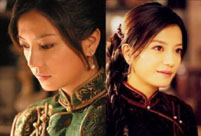 Most gorgeous female celebs in Chi-pao
Most gorgeous female celebs in Chi-pao Second round of test kicks off at Beijing Film Academy
Second round of test kicks off at Beijing Film Academy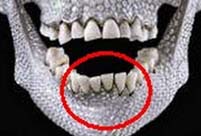 Ancient Qiang people had vertically grown teeth
Ancient Qiang people had vertically grown teeth Top 10 Chinese youth’s favorite seaside destinations
Top 10 Chinese youth’s favorite seaside destinations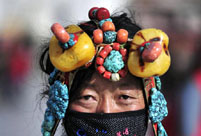 Traditional Tibetan clothing tailors
Traditional Tibetan clothing tailors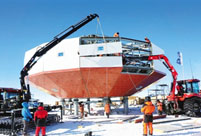 In photos: Unveiling Taishan station
In photos: Unveiling Taishan station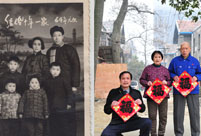 Beautiful moments of family reunion
Beautiful moments of family reunion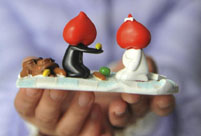 10 Valentine's Day ideas for couples
10 Valentine's Day ideas for couples Let's get married today!
Let's get married today! Chinese warplanes C919 to appear at Singapore Airshow 2014
Chinese warplanes C919 to appear at Singapore Airshow 2014 Ruins of Shang Dynasty's structure unearthed in Shaanxi
Ruins of Shang Dynasty's structure unearthed in Shaanxi  Intercity high speed train in operation
Intercity high speed train in operation Severe coldness freezes large parts of China
Severe coldness freezes large parts of China  Beautiful moments of Sochi
Beautiful moments of Sochi  It's not just performing this year
It's not just performing this yearDay|Week|Month